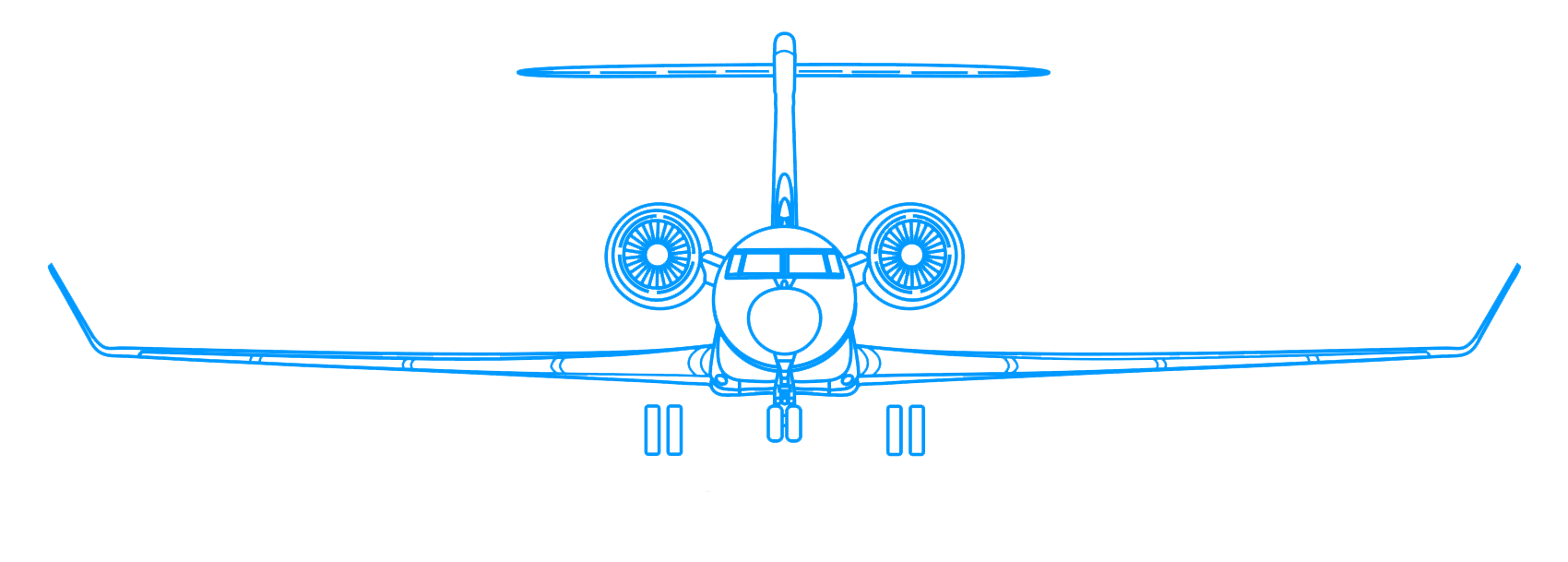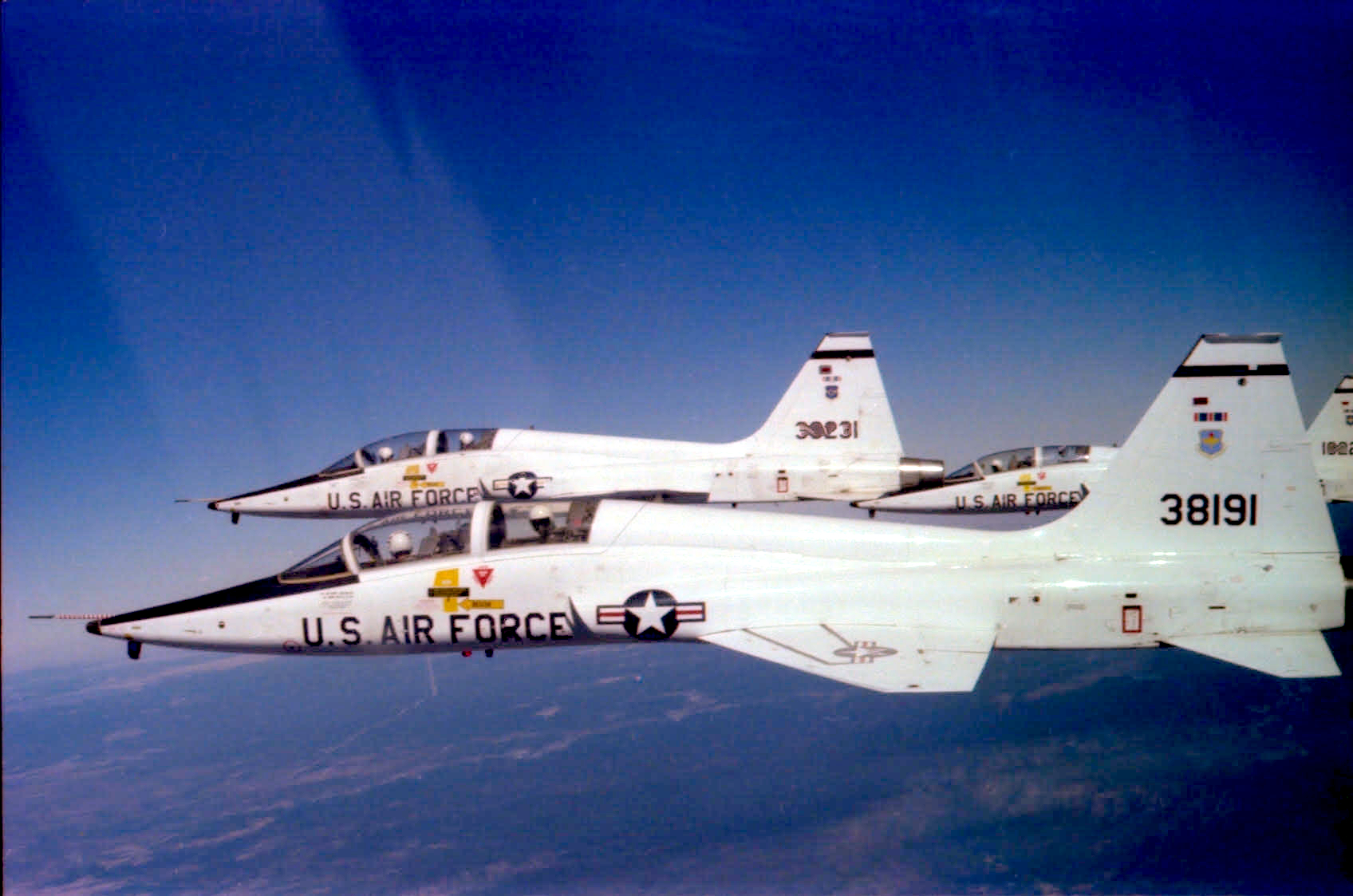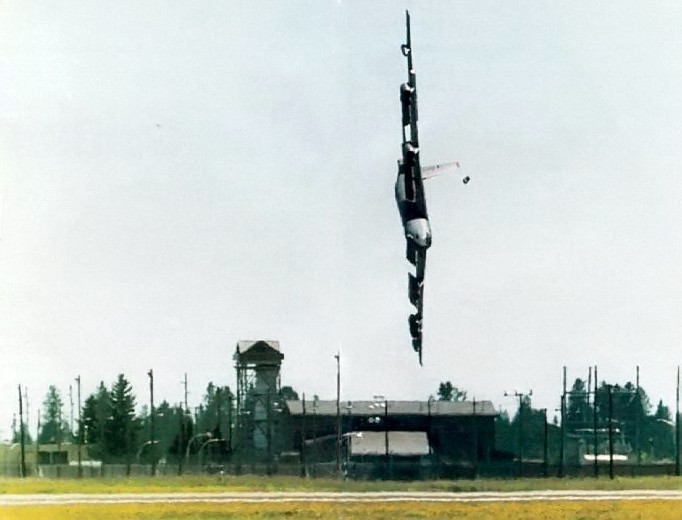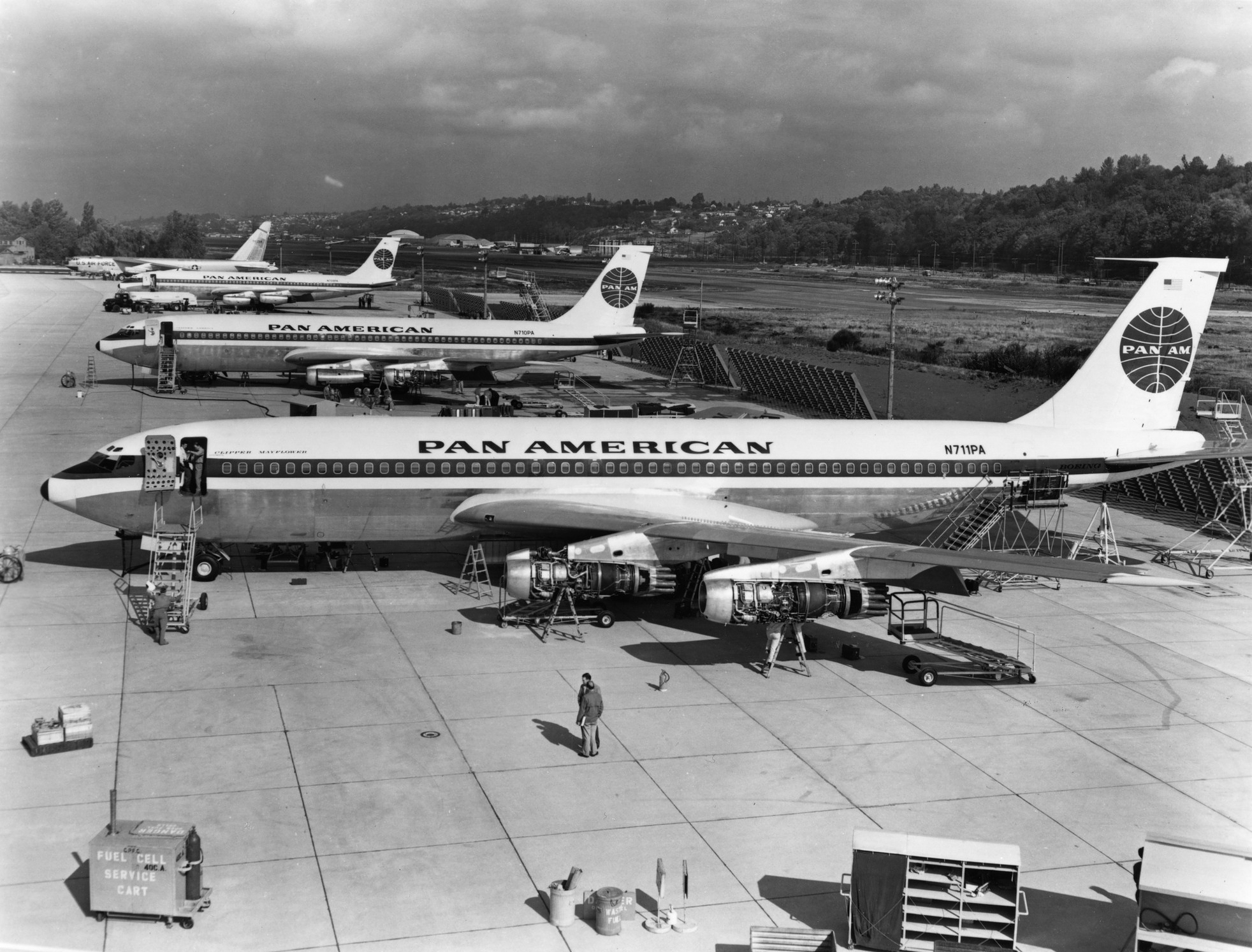As an Air Force pilot, I was issued: ego, (1) each, to go along with my flight suits, gloves, and helmet. It was part of the standard kit. Over the years to come I was to learn to appreciate the importance of that ego in military and non-military situations. It is easier to overcome obstacles if you believe you can, before even starting the attempt. Yes, what we are talking about here is confidence in one’s own abilities and talent. But what happens when that confidence exceeds actual abilities and talent?
— James Albright

Updated:
2021-05-15
The term ego comes from the Latin word for “I” but has grown to mean an unhealthy belief in our own importance. It is an arrogance that feeds a person’s need to not only be better than others, but to be recognized for it. I suspect it is a necessary personality trait for any professional engaged in high-risk activities. Consider a surgeon about to open up a patient’s chest cavity armed only with a few sharp tools and an even sharper intellect. Consider also a police officer walking into a dark alley equipped only with a flashlight, a gun, and a search warrant. And finally, consider the professional pilot.
I once landed at minimums with a passenger in the jump seat who never saw the runway until I lowered the nose onto the runway. Before he left, he asked, “how do you do that?” As I started to explain the magic behind the humble Instrument Landing System approach, he interrupted me. “No, I don’t care about that. I am asking how you get up the nerve to fly onto a tiny strip of runway that you cannot see until mere seconds before you land?” I suppose the answer is ego. As that great philosopher Minch Yoda said – yes, that was his first name – “Do or do not. There is no try.”
1 — The case for ego: a military perspective
2 — The Case against unchecked egos: it blinds us
3 — The Case against unchecked egos: it alienates the crew and shuts down CRM

1
The case for ego: a military perspective
It has been said that the U.S. took more losses in training during World War II than in combat. That is true in terms of aircraft. The U.S. lost 65,164 planes during the war, but only 22,948 in combat. The remaining were due to accidents in training or other accidents. The U.S. suffered 52,173 aircrew combat fatalities, but another 25,844 died in accidents, 15,000 of those in training in the U.S. While accident rates in the military have plummeted, training remains a not entirely safe activity. And yet men and women continue to volunteer for military cockpits. Why? To become pilots, of course.
Tom Wolfe, in his brilliant book “The Right Stuff,” likens this willingness to accept the odds to the “Single Combat” in the Old Testament story of David and Goliath. The gigantic Goliath, the Philistine champion, would battle all comers and the outcome of the one man versus another would determine the fate of nations. (Spoiler alert: David defeated Goliath.) The story is completed by legions of young men wanting to join the corps in defense of their nation. The nation, in return, granted these young men honor and glory before the fact, before they were sent off to fight.
We place upon our modern-day military pilots an honor and glory in a similar fashion. What you are about to undertake is difficult and could be hazardous. Please accept these wings of silver or gold, strut about with the iconic flight suit, and accept our thanks for what you are about to give.
Having been one of those young pilots donning a flight suit for the first time over forty years ago, I don’t recall a conscious thought about any of this. During my year in Air Force pilot training (1979) the Air Force lost four Cessna T-37 primary jet trainers and four Northrop T-38 advanced jet trainers with a combined nine fatalities. As news of each crash hit the flight line, I don’t recall anyone quitting, what the Air Force called a “Self-Initiated Elimination.” We just soldiered on. That government issue ego worked its magic.
Is there a similar “pay it forward” aspect to civilian flight training? I think so. You may have heard that flying airplanes is safer than driving a car. That isn’t entirely true. Flying in an airplane with a professional pilot at the controls is indeed safer than driving a car. But flying in an airplane with a general aviation pilot at the controls has a fatality rate closer to that of a motorcyclist, which is to say much worse than driving a car. So why do we volunteer to do that?
Many of us become pilots for the ability to identify as such. “What do you do for a living?” “I am a pilot.” (Accept the look of awe but try not to be smug about it.) If you are a pilot without an ego, you are a rare pilot indeed.
Ego is our friend; it soothes our worries and tells us what we want to hear: we can handle whatever is about to come our way. Getting rid of ego is scary; it forces us to confront our shortcomings.
One of my favorite ways to get a rise out of an audience is to put my ego on display. I begin by saying, “Every time I get into the captain’s seat of an airplane, I know the finest pilot in the world is in control of that aircraft.” (Cue polite laughter combined with hostile murmuring.) Then I say, “the only problem is that it seems I am very often confronted with evidence to the contrary.” It is okay to have an ego. In fact, I would argue it is necessary. What you must avoid, however, is an unchecked ego.
2
The Case against unchecked egos: it blinds us
Besides causing a loss of friendships there are two reasons having an unchecked ego is a problem for pilots. First, such an ego blinds us to our own shortcomings. If you think you are great, no amount of evidence can convince you otherwise. Second, an unchecked ego will alienate your crew and all who work with you; it will cripple Crew Resource Management (CRM).
A common saying among some with unchecked egos is, “It isn’t bragging if you can do it.” What they fail to see is that “doing it” might be more about luck than ability. This is especially problematic when the braggart in question is in a position of authority. I believe that was the case of B-52H pilot, Lieutenant Colonel Arthur Holland.
In 1994, Holland was the chief of the 92nd Bomb Wing Standardization and Evaluation branch at Fairchild Air Force Base, near Spokane, Washington. In that position, he was in charge of evaluating the performance of all other B-52H pilots on base. On June 24, 1994, he crashed his aircraft during a practice flight for an air show scheduled for the next day, killing all on board. It was a tragic event on multiple levels.
The crew consisted of Holland as the pilot in command, Lieutenant Colonel Mark McGeehan in the copilot position, Lieutenant Colonel Ken Huston as the weapon system officer/radar navigator, and Colonel Robert Wolff in the jump seat as a safety observer. It was Colonel Wolff’s last flight before retirement. His wife and many close friends were at the airfield to watch the flight and participate in a postflight ceremony. McGeehan’s wife and his two youngest sons watched from their backyard from their house on base.
The flight was planned for a series of low-altitude passes, 60° banked turns, a steep climb, and a touch-and-go landing. Tower sent him around prior to the touch-and-go landing because a preceding aircraft was still on the runway. Holland requested and tower approved a left 360° turn around the tower. During the maneuver, he apparently realized he might overfly a nuclear weapons storage facility, which was restricted airspace. He tightened his maneuver, flown at 250 feet above the ground. About three-quarters around the turn his bank exceeded 90° and the aircraft descended rapidly, hit the ground, and killed all onboard. The photo shows that McGeehan attempted to but failed to eject. Wolff’s seat was not ejection capable. There is no sign Holland or Huston attempted to eject.
Subsequent investigation showed that Holland had a history of this kind of reckless behavior which had been reported up the chain of command, but no formal action was ever taken against him. A few months before the accident flight, Holland flew a training mission over the Yakima Bombing Range to provide an authorized photographer shots of the bomb release. The minimum authorized altitude was 500 feet. His aircraft was filmed crossing the ridge at 30 feet. The copilot testified that he grabbed the controls while Holland laughed. The crew refused to ever fly with him again.
The squadron commander, Lieutenant Colonel McGeehan reported the incident to his boss, the wing’s director of operation, Colonel William Pellerin, and recommended Holland be grounded. Pellerin refused. McGeehan decided that his crews would no longer fly with Holland, causing tension between he and Holland. Colonel Pellerin was scheduled as the mission copilot on the accident flight, but was unable at the last minute. That left McGeehan as the copilot that day.
Holland’s case has become textbook fodder for Air Force leadership and Crew Resource Management schools. He was, for the most part, a capable pilot. When given a position of leadership and the opportunity to fly often with little oversight, Holland’s ego became unchecked. His role in death has been to provide the rest of us an example in how not to behave as professionals.
Holland would have argued that he had excellent stick and rudder skills and he might have been right, but his unchecked ego blinded him to his recklessness and the poor example he was setting from his perch as a leader. His conduct shut down any efforts at CRM.
3
The Case against unchecked egos: it alienates the crew and shuts down CRM
There are very few pilots left flying from the days before CRM, but those of us from that era have some horror stories to tell. If you don’t have access to one of us dinosaurs, I highly recommend Robert Gandt’s excellent book, “Skygods: The Fall of Pan Am.” It is perhaps the best book ever written about CRM.
I grew up in Hawaii where I used to marvel at those wonderful Pan American World Airlines Boeing 707s flying up Pearl Harbor Channel at a few hundred feet, turning right at what seemed to be the last possible moment to alight onto the runway with a view of Diamond Head to the east. Little did I know just how terrifying this could be. Gandt writes about one such approach from this time. Captain Lou Cogliani was a pilot from Pan Am’s heyday of flying sea planes. He was, what Pan Am founder Juan Tripp liked to call, a “Master of Ocean Flying Boats.”
Captain Cogliani hated flying with new hires and when forced to do so, put on a master class of how not to run a crew. On this particular flight, he was paired with a brand-new copilot who was doing his best to be a competent crewmember. Cogliani ignored the new hire’s warning about being too high on the approach and was forced to fly a circle to lose altitude. He then overshot the final approach course. He finally got vectored for a straight-in. The copilot kept quiet until he could bear it no longer. At six hundred feet the copilot said, “Do you want the landing gear down, captain?”
Cogliani swore at his first officer. “Landing gear? I’ll tell you when I want the landing gear.” Two and a half seconds later, with a great deal of authority he told him, “Gear down!”
Three days later, in the chief pilot’s office, the first officer was taught how things were to be. He was told, “You will sit there and raise and lower the captain’s landing gear on command, and keep your impertinent, newly hired mouth shut.”
Over the years, I’ve flown with more than a few pilots of Cogliani’s mindset. Thankfully not recently. But the mindset does exist even today. Here are a few of my favorite answers from Skygods that I have flown with.
Me: “We should check the stall barrier system as called for by the checklist.”
Skygod: “I don’t plan on stalling the aircraft.”
Me: “We need to make a Unicom call at this non-towered airport.”
Skygod: “I’m flying a jet, they can get out of my way.”
Me: “You shouldn’t be doing paperwork while I’m taxiing.”
Skygod: “I trust you not to hit anything.”
Me: “We will be landing below minimum fuel, we need to divert.”
Skygod: “The minimums are for lesser pilots. We are fine.”
In each case I suspected the Skygod in question was at some point a disciplined professional, but had later lost his way. I have wondered a few times if I was susceptible to this disease.
4
Reining in unchecked egos and “The disease of me”
If you are looking for an expert when it comes to dealing with unchecked egos, you need not go any further than Pat Riley, a former player and coach in the National Basketball Association. He was named the NBA Coach of the Year three times and has won multiple championships for the Los Angeles Lakers and the Miami Heat. He says that great teams follow a trajectory he calls the “Innocent Climb.” Before a team wins it is innocent; the team members watch out for each other and work towards a collective goal. But after success arrives, individuals begin to calculate their own worth against the team’s and egos appear. This led to the fall of the Lakers after two consecutive championships in 1987 and 1988. Riley said it was a case of “the disease of me leads to the defeat of us.”
How do you prevent the disease of me? Soccer Coach Tony Adams sums it this way: play for the name on the front of the jersey and people will remember the name on the back. There is a corollary in all this for us pilots.
Why are you a pilot? If your reason is to go down in history as a legendary pioneer or to break a speed, altitude, or endurance record, then I can’t help you. Men and women with this motivation exist and I believe they were necessary in aviation’s dawning era. But no more. If your motivation is to continuously improve your knowledge and skills as you operate your aircraft safely, we can talk.
As I mentioned, we Air Force pilots have titanium reinforced egos that can be both bullet proof and fragile at the same time. I’ve noticed that there is often an inverse relationship between outsized egos and abilities. The best pilots tend to be the humblest. But it is the pilots with the biggest egos that get the press. The best advice I can give you comes from the greatest fighter pilot of them all, Colonel John Boyd. He had a talk he gave to his acolytes. (Yes, he was so legendary that he had acolytes.) If you want to learn more about Colonel Boyd, I highly recommend my favorite biography of all time: “Boyd: The Fighter Pilot Who Changed the Art of War,” by Robert Coram. It is worth quoting directly:
“Tiger, one day you will come to a fork in the road,” Boyd said. “And you’re going to have to make a decision about which direction you want to go.” Using his hands to illustrate, Boyd marked off these two directions. “If you go that way you can be somebody. You will have to make compromises and you will have to turn your back on your friends. But you will be a member of the club and will get promoted and you will get good assignments.” Then Boyd paused to make the alternative clear. “Or," he said, “you can go that way and do something – something for your country and for your Air Force and for yourself. If you decide you want to do something, you may not get promoted and you may not get the good assignments and you certainly will not be a favorite of your superiors. But you won’t have to compromise yourself. You will be true to your friends and to yourself. And your work might make a difference. To be somebody or to do something.” He concluded with the words that guided many since: “To be or to do? Which way will you go?”
And that is the key to preventing your ego from consuming your inner principles, keeping you true to the foundations of Crew Resource Management and to always ensure that you put a priority on staying safe. I think pilots like those who killed themselves failing to takeoff that Sunday evening at Bedford were pilots who wanted to be somebody. They were the pilots who were too good for Standard Operating Procedures and checklists. They didn’t care about doing the things that make pilots professional. In the end they succeeded in being remembered. I shall always remember them as the pilots who showed just how badly the normalization of deviance can end. And they will inspire me to do better.


